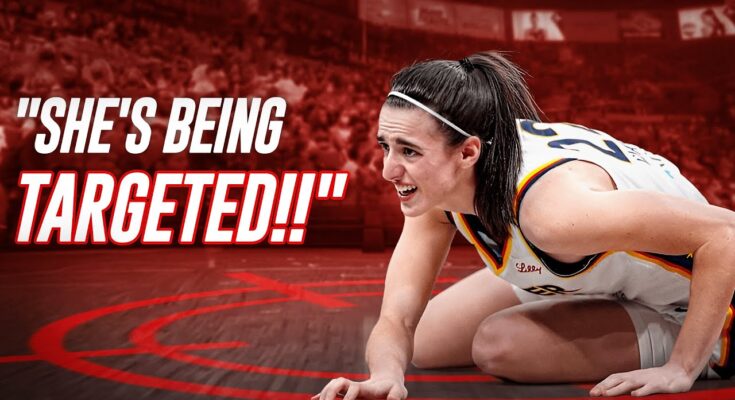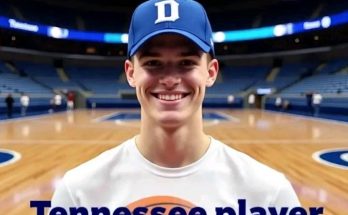Caitlin Clark burst onto the national stage as the University of Iowa’s all-time scoring leader, shattering NCAA records and transforming women’s basketball viewership—her college championship game drew nearly 19 million viewers, the second-highest audience ever for a non-Olympic women’s basketball event
As the first overall pick in the April 2024 WNBA Draft, she immediately entered a league hungry for a new superstar . Her rookie year was nothing short of historic—breaking rookie assist and three-point records, leading Indiana to its first playoff appearance since 2016, earning Rookie of the Year, and making the All-WNBA First Team ( Off the court, endorsements like a $28 million Nike deal further solidified her status as the face of women’s basketball
Yet with the spotlight came triangles: excitement, scrutiny, and pressure—the “Caitlin Clark Effect”—resonating across TV ratings, merchandise, team revenues (a $32 M surge), and citywide economic impacts
Clark’s leap into fame created a double-edged sword—while many celebrated her ascent, others were quick to critique. NBC’s sports columnist Christine Brennan and college legend Geno Auriemma warned global audiences against setting unattainable standards rooted in her college heroics . Even accomplished players like Paige Bueckers, herself a #1 draft pick, described the pressure on Clark as “inhumane,” stating it’s unrealistic to expect perfection every night (ctinsider.com).
The WNBA season brought physical tolls—a quad strain, a groin injury, and concussion protocols—compounded by an unforgiving schedule and physicality. These struggles translated into shooting slumps; she went 1-for-23 from three in away games, compared to markedly better home performances Analysts attributed these dips to both physical fatigue and the intense mental burden of “the job of being Caitlin Clark” .
Clark has repeatedly emphasized the importance of mental health care. During her rookie WNBA season, she spoke about working with a traveling sports psychologist to manage performance anxiety and off-court stresses ). On media days she encouraged others to acknowledge mental lows with: “It’s okay to not be okay” .
Victoria and solidarity aren’t just platitudes in the WNBA. Former Iowa teammate Kate Martin praised Clark’s resilience and offered support through listening ears (foxnews.com). Fellow WNBA rookies like Aliyah Boston and Paige Bueckers emphasized empathy—Bueckers especially argued for patience amid Clark’s early struggles (ctinsider.com).
Clark described her rookie season as a constant media treadmill—“I talk to media more than my own family,” she shared (foxnews.com). She also acknowledged the difference between college and pro life, noting:
The backlash wasn’t just on performance but appearance, race, and gender—a “cultural backlash” that Clark leaned into with grace .
Reddit users noted the league’s ambivalence, citing Clark’s Time Athlete of the Year and Forbes recognition as major milestones, yet criticising the WNBA for failing to fully embrace her on official platforms
Clark isn’t just playing—she’s elevating standards. Magic Johnson likened her arrival to Bird & Johnson’s duels decades ago). WNBA games now fill arenas and TV deals—like the $2.2B broadcast contract—reflecting her commercial and cultural impact .
Clark has proactively taken on leadership roles. During the Olympic break she led practices by directing offense and guiding teammates ). Her maturity shines as she extends grace to herself and others—staying “true to self,” even while acknowledging evolving expectations .
Clark emphasizes perfectionism is a barrier, not a benchmark: she described early career self-pressure as a “headcase,” but found release once she leaned on teammates
By normalizing therapy for athletes—college and pro—she’s breaking stigmas. She promotes it as “normal,” not “necessary after crisis” (aol.com).
The collective voice of her peers is unified: from Paige Bueckers condemning draining scrutiny as “inhumane”to Aliyah Boston calling for blocking outside noise —the message is clear: empathy is essential.
Clark is currently sidelined with a groin injury—her first miss since collegeAnalysts caution against rushing her back, citing both physical health and mental load. Calls for better protection on court and structured pacing are growing louder .
As a 2025 WNBA All-Star captain—elected with record-breaking votes—Clark’s leadership is recognized at the highest levels Her maturity could shape not only Indiana’s success, but also how the league supports elite young talent.
Beyond stats and endorsements, Clark’s role might be her most enduring legacy: mentoring teammates, raising awareness of mental health, and consistently advocating for self-care and team unity.
Caitlin Clark’s entry into the WNBA has been seismic—reshaping ratings, revenues, and expectations. But beneath the highlight reel lies a human navigating unprecedented pressures. Her layered approach—embracing therapy, advocating empathy, leading through examples—offers a roadmap for athletes balancing performance with well-being.
Her journey reminds us: excellence and vulnerability can coexist. By championing mental health as fiercely as she guards the perimeter, Clark may well be forging a deeper legacy than mere records—the blueprint for sustainable stardom.Let me know if you’d like a section expanded, more quotes, or if you’d like the essay tailored for a specific audience or publication style.



